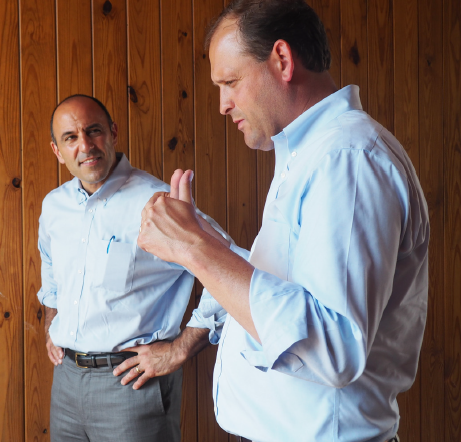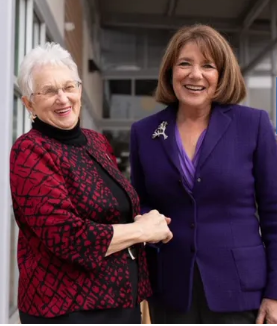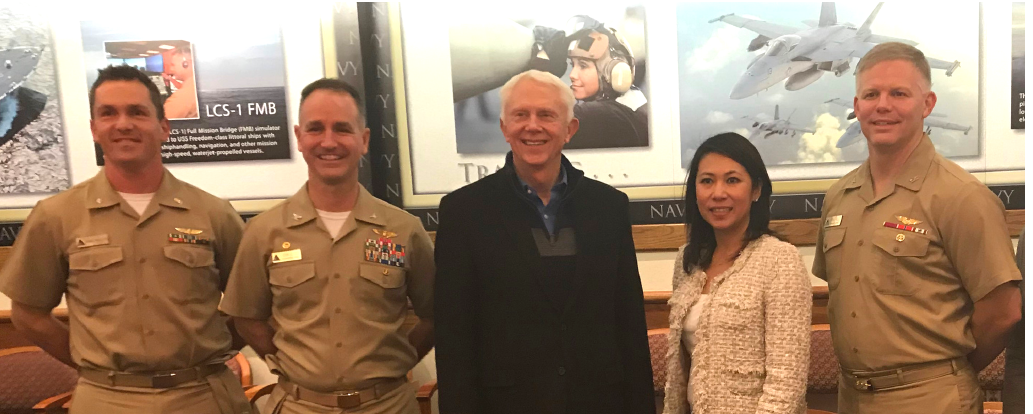As Fourth of July festivities begin to kick off, now’s the time to reflect on civility and compromise as core roots of American governance. Despite holding often vastly differing and passionate views, America’s Founding Fathers intentionally transcended differences and established a political system that functions best when good people with disparate beliefs can find common ground. In fact, some of Congress’s most monumental achievements resulted from bipartisan action, such as the establishment of Social Security, the 1964 Wilderness Act, the Civil Rights Act, Medicare, the1983 Social Security reform, the 1990 Americans with Disabilities Act and 1996’s welfare reform. We should respect differing views and embrace vigorous debate, while also working toward solutions that address the nation’s critical needs. In so doing, civility, in a political context, is a key component of progress and patriotism that is all too often forgotten.
These days, partisan bickering and divisive headlines have become the norm while forging bipartisan agreements and working across the aisle has become the exception. It’s time to get back to our Founding Fathers’ vision for our nation; it’s time for Congress to foster a constructive collision of ideas that produces consensus on solutions for the American people. While there are many ways of accomplishing this, one is to get to the root of the issue: building trust. Without that trust and understanding of others’ views, it’s difficult to find common ground on which to work together.
That’s why the Bipartisan Policy Center launched the American Congressional Exchange Program (ACE), which aims to build stronger relationships between members of Congress on both sides of the aisle. ACE invites members of the U.S. House of Representatives to step outside the halls of Congress and visit the district of a member of the opposite party from a geographically and culturally different district, allowing lawmakers to spend time building genuine personal relationships.
While visiting their colleague’s district, members learn about policy issues from a different perspective, form friendships across parties, and find areas of common ground upon which to build compromise. This approach makes room for more progress on issues on Capitol Hill by helping Congress to work more effectively. Participants include Rep. Andy Barr (R-KY), paired with Rep. Jimmy Panetta (D-CA); Rep. Rodney Davis (R-IL), paired with Rep. Lisa Blunt Rochester (D-DE); Rep. Jack Bergman (R-MI), paired with Rep. Stephanie Murphy (D-FL); Rep. Salud Carbajal (D-CA), paired with Rep. Don Bacon (R-NE); and Rep. Steve Womack (R-AR), paired with Rep. Derek Kilmer (D-WA).



ACE has encouraged the formation of critical bipartisan relationships, several of which have led to legislative achievements. Following her participation in ACE, Rep. Stephanie Murphy (D-FL) introduced the BATTLE for Servicemembers Act, a bipartisan piece of legislation aimed at improving the training outgoing servicemembers receive to prepare them for civilian life. Among the bill’s original cosponsors was Rep. Jack Bergman, the highest-ranking military member to serve in Congress, who visited a VA hospital and attended a Veterans’ Advisory Board meeting with Rep. Murphy during his visit to her district through ACE the previous month.

Among ACE participants are the Modernization Committee chairman Rep. Derek Kilmer and Committee member Rep. Rodney Davis. Like the bipartisan efforts of ACE, the Modernization Committee aims to make Congress work better for the American people. One of the areas for improvement is modernizing the actual structure of Congress to make it easier for members to get to know one another and build trust across the aisle.
What would a Congress dedicated to greater civility among the American people’s representatives—one our Founding Fathers envisioned— look like? It would enable bipartisan cooperation and consensus building to achieve legislative results and include members who are respectful, seek common ground, and keep an open mind. House Resolution 400, introduced by a group of freshman and sophomore members in the 115th Congress, calls on members to support National Day of Civility on July 12 and practice civility in their day-to-day-lives. Participating in the ACE program, or programs that enable trust building, is another way Members can seek common ground.
Compromise is a key pillar of our democracy—and our nation’s founding—and has led Congress to work effectively to serve Americans throughout history. As Congress moves towards modernization, perhaps this Fourth of July it should remember the Founding Fathers’ vision and the importance of working together.